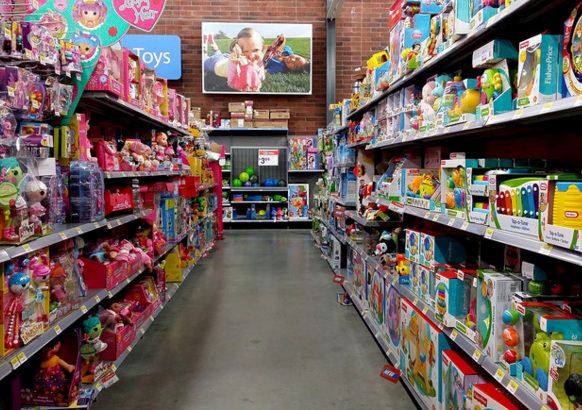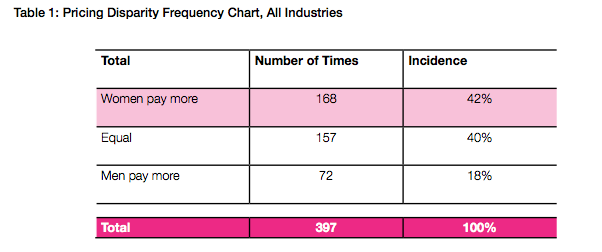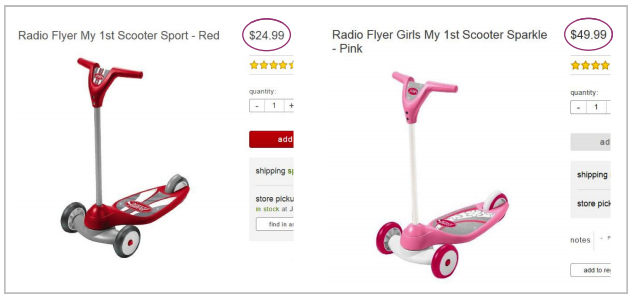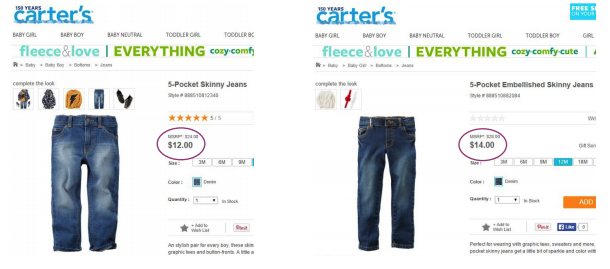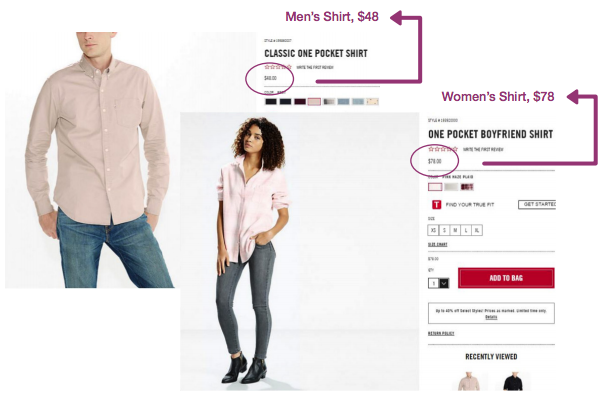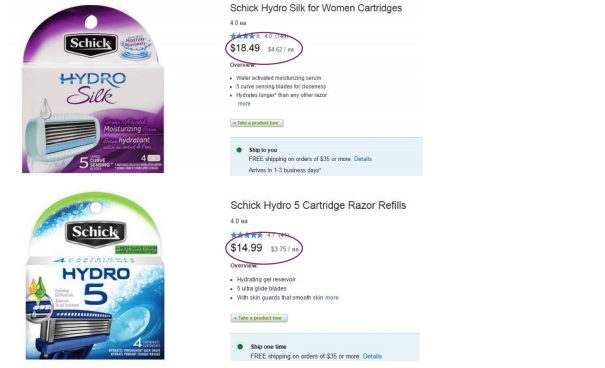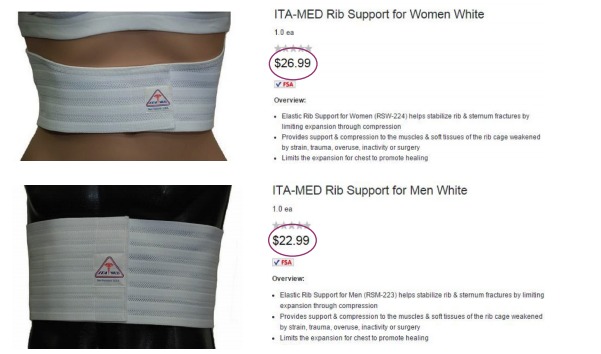Study Shows Women Pay Significantly More Than Men For Virtually The Same Products
It’s expensive being a woman, literally. At least according to a new study that found women will spend thousands of dollars more than men over the course of their lives on products that are effectively the same.
The study [PDF], conducted by the New York City Department of Consumer Affairs, examined gender pricing in New York City, comparing nearly 800 products with clear male and female versions from more than 90 brands sold in stores and online.
The products, which were virtually identical except for gender-specific packaging, came in five categories: toys and accessories; children’s clothing; adult clothing; personal care products; and senior/home health care products.
In all, the study found that on average across the five industries, women’s products cost 7% more than similar products for men.
When it came to toys and accessories, women paid an average of 7% more than men. Specifically, toys labeled as “for girls” cost more than boy-targeted versions 55% of the time.
The study examined six product categories consisting of 106 items: bikes and scooters, general toys, backpacks, preschool toys, helmets and pads, and arts and crafts.
In one example, the study found that bikes and scooters marketed toward girls cost an average of $86.72, while the boy-focused toy cost $81.90.
Specifically, a red Radio Flyer scooter for sale at Target was found to cost just $24.99, while the designated pink girl scooter retailed for $49.99.
Results were similar for children’s clothing, with girl-specific items costing on average 4% more than boy-designated clothing.
DCA analyzed nine types of children’s clothing – children’s shirts, children’s jeans, baby pants, onesies, baby sweaters, baby shirts, baby shoes, children’s underwear, and toddler shoes – for a total of 168 articles of apparel.
In one example for children’s jeans, a pair of Carter’s-branded skinny jeans cost $12 for boy, while the embellished pair designated for girls cost $14.
Overall, the price discrepancy for children’s clothing was the lowest of all categories included in the study.
Pricing becomes a bit more segregated when it comes to adult clothing with women’s clothing costing on average 8% more than men’s.
In all, DCA analyzed 292 articles of clothing including dress pants, dress shirts, sweaters, jeans, shirts, socks, and underwear.
Similar dress shirts from Levi’s cost $48 for men, but $78 for women.
The widest pricing discrepancy was found in personal care products, where women paid on average 13% more than men.
Of the 122 individual products analyzed, including shampoo and conditioner, razor cartridges, razors, lotion, deodorant, body wash, and shaving cream, the average item cost women $57.18, and cost men $50.75, a difference of $6.43.
Similar packages of razors for sale at CVS cost women $2 more than men, $6.99 versus $4.99 for men. The discrepancy widened for razor cartridges, with women paying $18.49 and men paying $14.99 for Schick-branded refills.
Senior home health care products also favored men in pricing, with women’s paying on average 8% more than their counterparts.
The 106 items analyzed by DCA included supports and braces; canes; compression socks; adult incontinence products; personal urinals; and digestive health products, consisting of laxatives and probiotic supplements.
In total, one of each average item cost women $140.46, and cost men $130.08, a difference of $10.38.
On average, the largest price discrepancy was found in personal urinals; women were charged 21% more, with an average difference of $2.00 more per urinal.
Perhaps the most confusing pricing difference came in the average price for supports and braces, which the study found came in nearly identical packaging. Women paid nearly 15% more than men in this category, with the average difference for these often-identical products being $4.74.
While some of the pricing differences for gender-specific products were rather minuscule, DCA found that over the course of a woman’s life the disparities were significant. However, the agency did not provide a specific figure representing the costs over a lifetime.
“Though there may be legitimate drivers behind some portion of the price discrepancies unearthed in this study, these higher prices are mostly unavoidable for women,” the study’s authors say. “Individual consumers do not have control over the textiles or ingredients used in the products marketed to them and must make purchasing choices based only on what is available in the marketplace. As such, choices made by manufacturers and retailers result in a greater financial burden for female consumers than for male consumers.”
Want more consumer news? Visit our parent organization, Consumer Reports, for the latest on scams, recalls, and other consumer issues.


